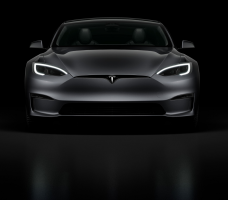
— A Tesla Model S battery lawsuit received final approval from a federal judge after a Tesla owner claimed a software update caused problems with the cars.
The class action lawsuit alleges Tesla issued software updates to prevent battery fires, but the updates caused reductions in the maximum battery capacity and travel range by 20 to 40 miles.
According to the Model S battery lawsuit settlement, affected customers include:
"All U.S. residents who, anytime during the period from May 15, 2019 through September 1, 2020, owned or leased a Tesla Model S vehicle that experienced a limitation of maximum battery voltage as the result of the software update issued by Tesla in May 2019."
About 1,743 Model S cars in the U.S. were subject to a 10% maximum voltage limitation following a May 2019 software update. A July 2019 update restored about 3% of the battery voltage and a third update released in March 2020 was to fully restore the voltage over time as the vehicles were driven.
Attorneys for the plaintiff confirmed the voltage limitation was temporary, "with a 10% reduction lasting about 3 months, and a smaller 7% reduction lasting another 7 months before the corrective update was released in March 2020."
Tesla Model S Battery Lawsuit Settlement Agreement
Tesla Model S owners and lessees may receive about $625 each, and that amount will be prorated for those who owned or leased their cars for only part of the relevant period.
The judge overruled a Tesla Model S owner who objected to the terms of the settlement agreement.
When the class action was filed, the plaintiff demanded that Tesla give owners back the money they paid for their vehicles and replace the batteries. According to the plaintiff, Tesla knew the batteries were defective and the software update was issued only to avoid providing battery replacements under warranty.
The settlement agreement doesn't provide any of those benefits, and the Model S owner who objected to the settlement argued he spent about $10,000 on a larger battery to extend its range. He also said that even with the software updates, his vehicle's “full 300 mile range” has not been restored.
According to the objector, he deserves either “[his] $10,000.00 refunded or [his] full 300 mile range restored.”
The judge overruled the objector by saying it wouldn't be fair to other Tesla customers to set aside the settlement agreement.
According to the settlement, the Tesla owner who sued will receive $1,000, and the attorneys who represented the plaintiff will receive fees of $373,377.79 plus their costs of $36,622.21.
The Tesla Model S battery lawsuit was filed in the U.S. District Court for the Northern District of California: David Rasmussen, v. Tesla, Inc.
The plaintiff is represented by Lieff Cabraser Heimann & Bernstein, LLP, and the Law Offices of Edward C. Chen.




